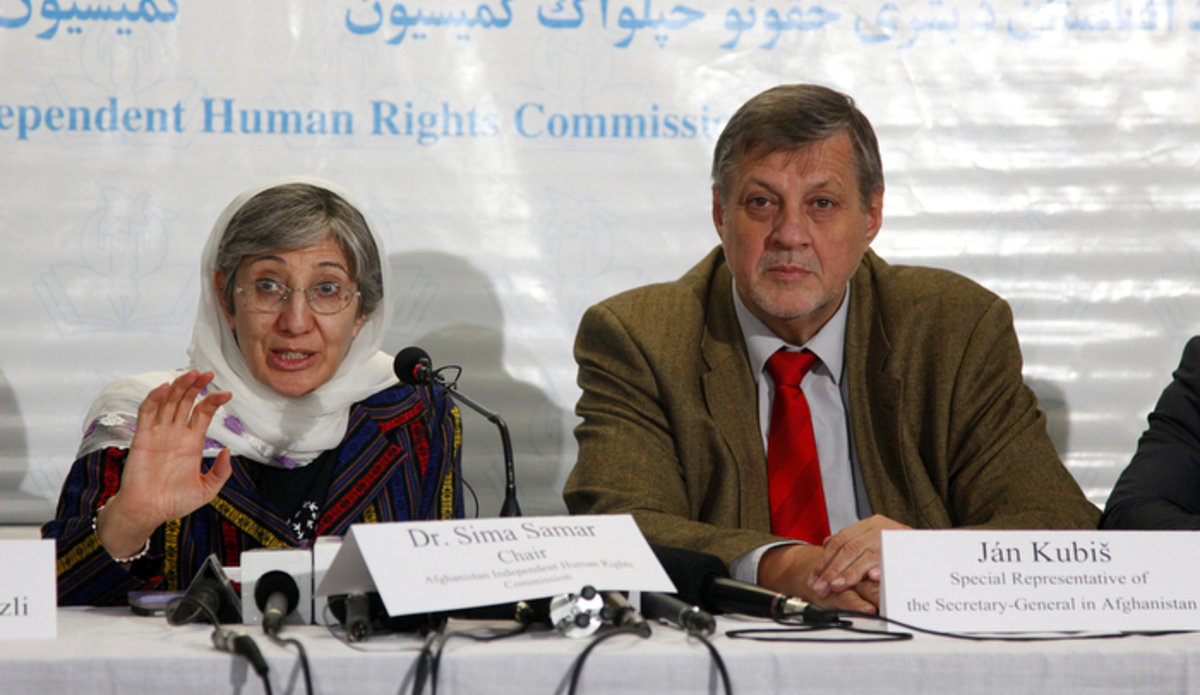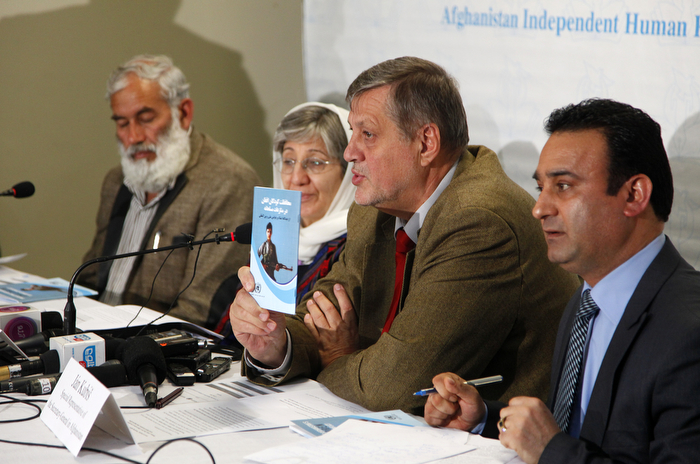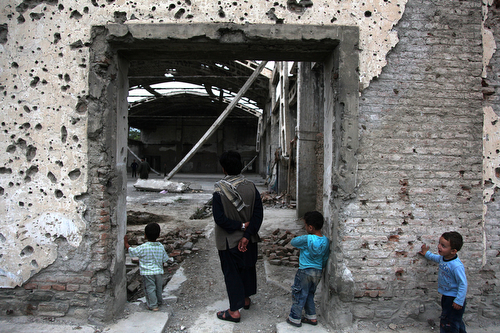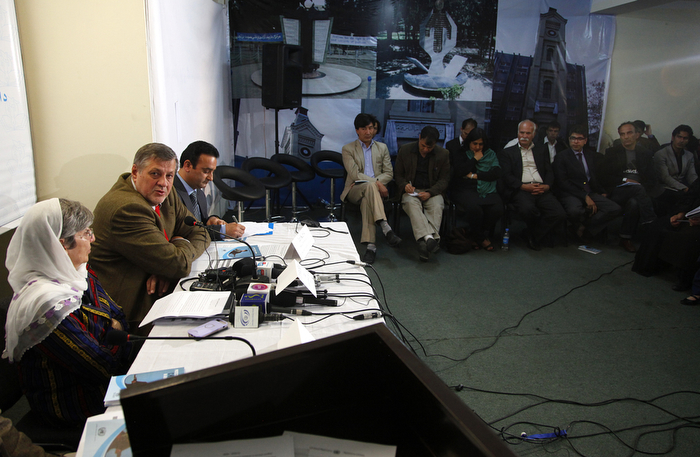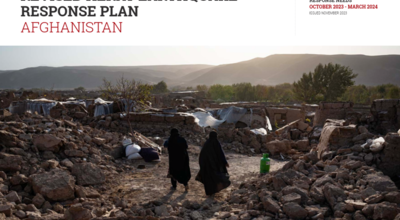UNAMA launches booklet on protecting Afghan children in armed conflict
KABUL - The United Nations Assistance Mission in Afghanistan (UNAMA) today launched a booklet on the obligations of all parties to the country’s armed conflict to respect and promote the rights of children under international law and Islam.
The booklet also highlights the complementarity of the teachings and fundamental tenets of Islam with international human rights and international humanitarian law.
“There is no higher duty for every human being, every parent, every citizen, than to protect the future of the country: children. They deserve normal lives and normal childhoods, they deserve to be able to play wherever they want without being threatened by improvised [explosive] devices, without being threatened by unexploded remnants of war,” said the Secretary-General’s Special Representative for Afghanistan and head of UNAMA, Ján Kubiš, at the launch which took place at offices of the Afghan Independent Human Rights Commission (AIHRC) in the capital, Kabul.
“Unfortunately, for the last 30 years, the children of Afghanistan have been living and starting their lives, and often ending their lives, in the condition of war,” Mr. Kubiš added. “Every life of a child wasted, every future of a child unmet and destroyed by this war is one too many, but what I find particularly appalling is to brainwash children and then to use them as suicide bombers – and, in my two and half years here, there are many cases of children being misused as suicide bombers.”
The conflict in Afghanistan has left children dead and injured, including without limbs, according to UNAMA. It has often denied children basic human rights such as access to education and adequate healthcare, and has impeded even the most basic economic development, fuelling poverty and further vulnerability of children.
UNAMA documented 1,694 child casualties – 545 killed and a further 1,149 injured – in 2013. The leading cause of death and injury of children was improvised explosive devices (IEDs), which do not distinguish between combatants and civilians and are the biggest killer of civilians in Afghanistan.
The booklet – entitled ‘Protecting Afghanistan’s Children in Armed Conflict,’ with editions in Dari, Pashto and English – is the result of a series of discussions and collaboration between UNAMA and respected Afghan religious leaders, scholars and experts representing different religious and academic institutions.
One of those scholars took part in today’s launch, Professor Abdulbashir Fazli from Kabul University’s Faculty of Sharia, along with the AIHRC’s Chairperson, Dr. Sima Samar.
“The usage of children by armed opponents in the conflict is a matter of serious concern,” said Dr. Samar. “We appeal to the armed opponents to strictly follow the Islamic Sharia and international conventions.”
“Our recommendations are that all the parties to conflict should strictly follow humanitarian and international law during war and protect the life of children,” Dr. Samar added. “Avoid the usage of IEDs and remote-control bombs as they indiscriminately kill civilians, and the culture of impunity against those who have committed crimes against children should end.”
In his comments, Professor Fazli said that Sharia law “protects the rights of children from the womb of their mothers until they reach the teenage years.”
Focusing on the six grave violations of child rights in armed conflict, namely: the killing and maiming of children, recruitment, use and association of children with armed forces and armed groups; the abduction of children; attacks against schools and hospitals; rape and other forms of sexual violence against children, and the denial of access to humanitarian assistance, the booklet examines each violation under Sharia law, international human rights law, international humanitarian law and the national laws of Afghanistan.
The booklet is aimed at becoming a resource and advocacy tool for all child protection partners and promoting dialogue on critical and sensitive issues, according to UNAMA, with the ultimate goal of protecting Afghan children from the scourge of war and supporting the efforts of Afghan civil society and the AIHRC.
Today’s event follows the recent launch at UN Headquarters in New York of a campaign, ‘Children – Not Soldiers,’ which seeks to mobilize support to end and prevent the recruitment and use of children by national security forces by 2016. The campaign, jointly initiated by the Secretary-General’s Special Representative for Children and Armed Conflict, Leila Zerrougui, and the UN Children’s Fund (UNICEF), is supporting eight countries in this effort, including Afghanistan.
“I particularly welcome the Government of Afghanistan's endorsement of this campaign and its commitment to take further action to ensure that children are not recruited into the ranks of the Afghan national security forces,” Mr. Kubiš said.
During the campaign, the UN's Special Representative for Children and Armed Conflict and UNICEF will work with their UN and non-governmental partners to reinforce efforts to support and strengthen their engagement with the eight countries aimed at reaching the goal of ending and preventing recruitment and use of children in their country's security forces.
Click here for the remarks (as prepared for delivery) of the Secretary-General’s Special Representative for Afghanistan, Ján Kubiš, at the booklet's launch
Read the booklet: Protecting Afghanistan's Children in Armed Conflict
 UN
UN
